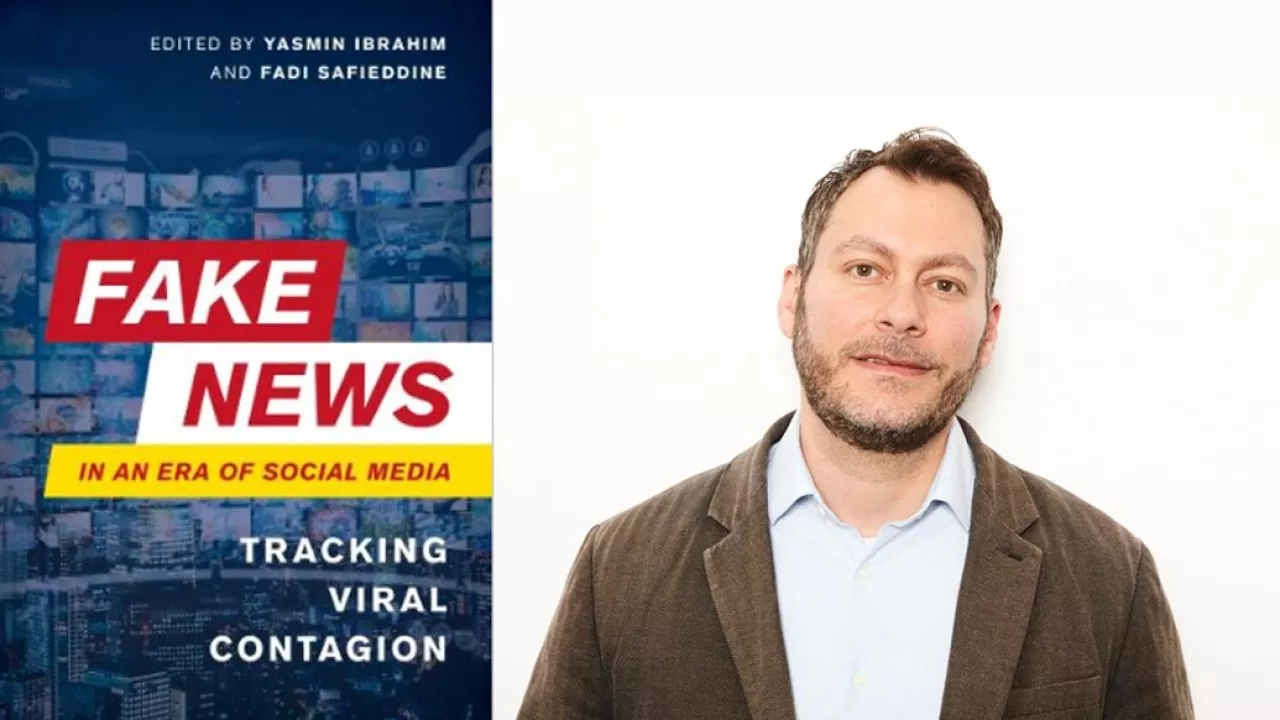Fake news spreads like disease, says UEL academic
Fake news spreads like disease, says UEL academic
Published
25 February 2020
Share
The spread of fake news resembles the spread of disease and having tools to verify and validate sources could potentially be the cure, according to a new book on the subject.
The newly published book, Fake News in an Era of Social Media: Tracking Viral Contagion, edited by University of East London (UEL) academic Dr Fadi Safieddine and Queen Mary academic Yasmin Ibrahim examines the rise of fake news and how we can treat it.
Social media has expanded to become a key platform for fake news which has had unpredictable and debilitating consequences. Fake news has been linked to an increase in measles cases, surges in youth crimes, the spread of pseudo-science, compromised national security, and more. Some even perceive it as a global threat to democratic systems around the world.
"The use of social media has expanded over the last few years to become a key source of news for many users. Information shared online by many social newsgroups lacks basic verification and accountability of the source. And while there have been some attempts to combat the spread of misinformation, we are still getting grips at understanding the variables that contribute to the success at spreading so fast."
Dr Fadi Safieddine, UEL academic expert on fake news, said.
Over the past three years, Dr Fadi Safieddine and research colleagues have used the big-data simulation tool Biolayout Express to simulate and publish their findings on the variables affecting the spread of fake news.
They have found the main factor contributing to the continuing failure to combat the spread of fake news is the lack of validation tools.
During their simulations, the team were able to demonstrate that having 30 per cent of users check if a post is fake can help stop the spread of fake news to its source. However, and keeping all variables the same, having an influencer with over 1,000 dedicated followers can make controlling spread a lot harder.
The simulation under these circumstances shows 54 per cent of users are needed to be able to validate and check a post to stop it propagating. As such, the team concluded that the only way to stop the spread of fake news has to be in the form of an online tool that allows users to perform a validation check on an article.
"Recently, Google and Facebook have made attempts to develop fact-checking tools that rely on third-party fact-checkers with limited success," Dr Safieddine explains.
He added: "However, the ability to combat the spread of fake news remains limited and hampered by the slow response of third-party fact-checkers.
Assessment of tools based on 3D simulates and Information Quality (IQ) assessment show some reduction in the spread of fake news and an improved IQ, but the ability to combat the spread remains limited and hampered by the slow response of third-party fact-checkers.
The simulations also show that a semi-automated approach to fact-finding, dubbed 'right-click authenticate', that allows the user to get a faster indication of the validity of the information remains the most efficient and effective option, see figure 3.
For more on Dr Safieddine and his team's research on Fake News, please visit his research website at Authenticate.info.
Share
Communications team
Contact us for press and interview requests



